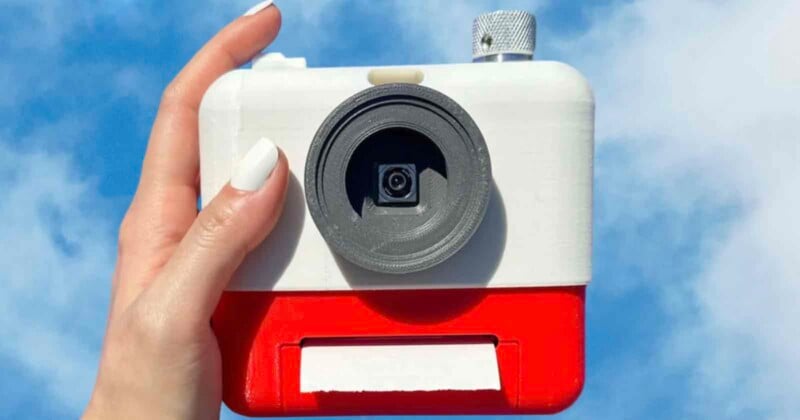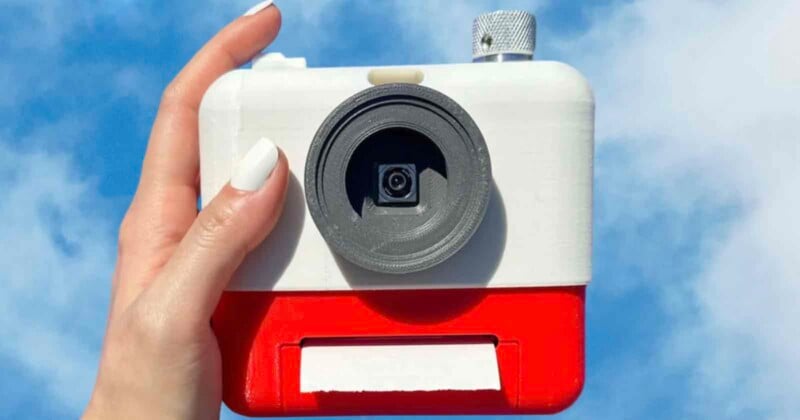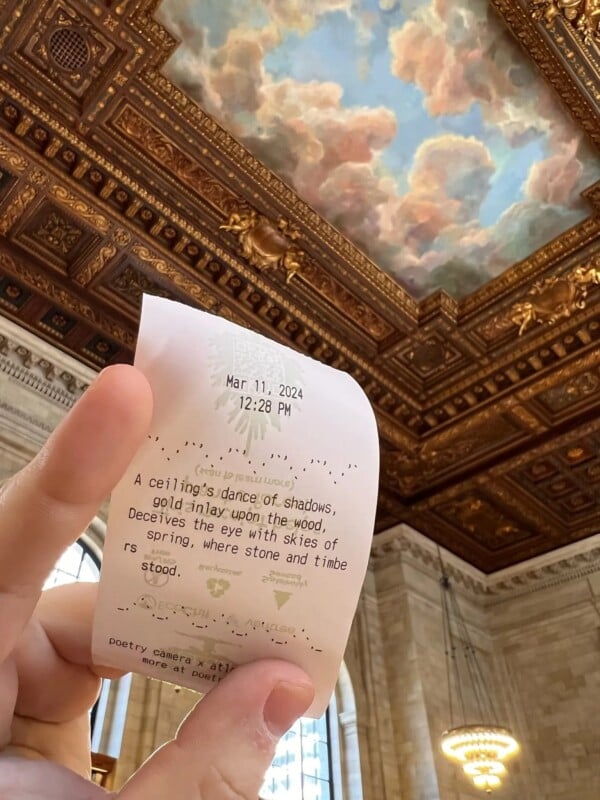

This AI-powered device may look like an ordinary Polaroid camera. But instead of capturing images, it uses machine learning to transform photos into poems.
The world’s first “Poetry Camera” is an open-source project created by Kelin Carolyn Zhang and Ryan Mather that combines technology with artistic vision.

The Poetry Camera transforms the visual input it receives into a poem that describes the shot that was just captured by the device.
According to a report by Interesting Engineering, the Poetry Camera is powered by a Raspberry Pi single-board computer and leverages OpenAI’s GPT-4 model — merging hardware with AI technology.
Interesting Engineering reports that the camera’s credit card-sized Raspberry Pi single-board computer capture images and processes them. It extracts the visual data and communicates with OpenAI’s GPT-4 to generate poetry.
@kelin.online jumpscare at the end #raspberrypi #poetrycamera #pcb #electronics #diyproject #ai #tech #indiedev ♬ original sound – kelin
The AI component of the poetry camera analyzes various aspects and visuals of the photo, including colors, patterns, significant elements, and even the underlying emotions conveyed.
This information serves as the foundation for the poem generated by the Poetry Camera.
‘What if Text Came Out Instead of a Photo?’
According to TechCrunch, Zhang and Mather say that the Poetry Camera’s output is not limited to a single format. Because the device is open source, users can choose from various poetic forms — such as haiku, sonnet, or free verse — depending on their preferences and ability and willingness to collaborate with the source code.
Zhang and Mather say that the invention of the Poetry Camera started as a personal passion project for them.
“The project’s origin is when I got access to GPT-3. My first instinct was to play Dungeons & Dragons with it because I’m a nerd. I figured ‘if this thing could play Dungeons & Dragons, that would be impressive.” Mather tells TechCrunch.
“And yeah, it did work for that. This was back when you had to do prompt engineering. So it took some elbow grease to get it to work.
“But I also had this idea of maybe making some camera as a project. ‘What if you took a camera, but it was a reaction to Instagram culture? What if text comes out instead of a photo?’
“Everyone prefers the book version over the movie, so it’s like that for capturing moments.”
For now, the Poetry Camera remains a personal passion project. However, as interest in the Poetry Camera grows online, the inventors are contemplating the possibility of making the device commercially available to a broader audience.
“After the first 100 times people asked, we said, ‘We’re not selling it,’ but after 101 questions, we started thinking about it in more detail, wondering if we should be making it available to people,” Zhang tells the publication.
“But at the same time, it’s an art project, you know? Our initial response was to leave capitalism out of it.”
Zhang and Mather are currently debating whether to release the Poetry Camera as a limited product that prioritizes quality rather than going head-first into mass production.
More information on the Poetry Camera can be found on its website, Instagram, and TikTok.
Image credits: All photos by Poetry Camera.






